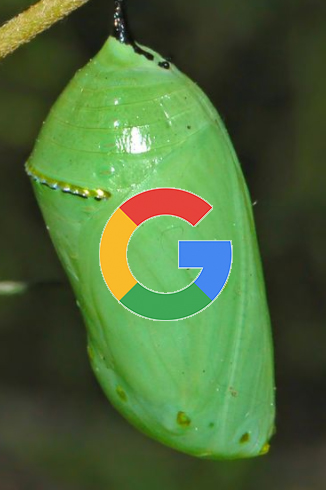 In The Adpocalypse: What it Means, Vlogbrother Hank Green issues a humorous lament on the impending demise of online advertising. Please devote the next 3:54 of your life to watching that video, so you catch all his points and I don’t need to repeat them here.
In The Adpocalypse: What it Means, Vlogbrother Hank Green issues a humorous lament on the impending demise of online advertising. Please devote the next 3:54 of your life to watching that video, so you catch all his points and I don’t need to repeat them here.
Got them? Good.
All of Hank’s points are well-argued and make complete sense. They are also valid mostly inside the bowels of the Google beast where his video work has thrived for the duration, as well as inside the broadcast model that Google sort-of emulates. (That’s the one where “content creators” and “brands” live in some kind of partly-real and partly-imagined symbiosis.)
While I like and respect what the brothers are trying to do commercially inside Google’s belly, I also expect them, and countless other “content creators” will get partly or completely expelled after Google finishes digesting that market, and obeys its appetite for lucrative new markets that obsolesce its current one.
We can see that appetite at work now that Google Contributor screams agreement with ad blockers (which Google is also joining) and their half-billion human operators that advertising has negative value. This is at odds with the business model that has long sustained both YouTube and “content creators” who make money there.
So it now appears that being a B2B creature that sells eyeballs to advertisers is Google’s larval stage, and that Google intends to emerge from its chrysalis as a B2C creature that sells content directly to human customers. (And stays hedged with search advertising, which is really more about query-based notifications than advertising, and doesn’t require unwelcome surveillance that will get whacked by the GDPR anyway a year from now.)
Google will do this two ways: 1) through Contributor (an “ad removal pass” you buy) and 2) through subscriptions to YouTube TV (a $35/month cable TV replacement) and/or YouTube Red ($9.99/month for “uninterrupted music, ad-free videos, and more”).
Contributor is a way for Google to raise its share of the adtech duopoly it comprises with Facebook. The two paid video offerings are ways for Google to maximize its wedge of a subscription pie also sliced up by Apple, Amazon, Netflix, HBO, ShowTime, all the ISPs and every publication you can name—and to do that before we all hit Peak Subscription. (Which I’m sure most of us can see coming. I haven’t written about it yet, but I have touched hard on it here and here.)
I hope the Vlogbrothers make money from YouTube Red once they’re behind that paywall. Or that they can sell their inventory outside all the silos, like some other creators do. Maybe they’ll luck out if EmanciPay or some other new and open customer-based way of paying for creative goods works out. Whether or not that happens, one or more of the new blockchain/distributed ledger/token systems will provide countless new ways that stuff will get offered and paid for in the world’s markets. Brave Payments is already pioneering in that space. (Get the Brave browser and give it a try.)
It helps to recognize that the larger context (in fact the largest one) is the Internet, not the Web (which sits on top of the Net), and not apps (which are all basically on loan from their makers and the distribution systems of Apple and Google). The Internet cannot be contained in, or reduced to, the feudal castles of Facebook and Google, which mostly live on the Web. Those are all provisional and temporary. Money made by and within them is an evanescent grace.
All the Net does is connect end points and pass data between them through any available path. This locates us on a second world alongside the physical one, where the distance between everything it connects rounds to zero. This is new to human experience and at least as transformative as language, writing, printing and electricity—and no less essential than any of those, meaning it isn’t going to go away, no matter how well the ISPs, governments and corporate giants succeed in gobbling up and spinctering business and populations inside their digestive tracts.
The Net is any-to-any, by any means, by design of its base protocols. This opens countless possibilities we have barely begun to explore, much less build out. It is also an experience for humanity that is not going to get un-experienced if some other base protocols replace the ones we have now.
I am convinced that we will find new ways in our connected environment to pay for goods and services, and to signal each other much more securely, efficiently and effectively than we do now. I am also convinced we will do all that in a two-party way rather than in the three-party ways that require platforms and bureaucracies. If this sounds like anarchy, well, maybe: yeah. I dunno. We already have something like that in many disrupted industries. (Some wise stuff got written about this by David Graeber in The Utopia of Rules.)
Not a day goes by that my mind isn’t blown by the new things happening that have not yet cohered into an ecosystem but still look like they can create and sustain many forms of economic and social life, new and old. I haven’t seen anything like this in tech since the late ’90s. And if that sounds like another bubble starting to form, yes it is. You see it clearly in the ICO market right now. (Look at what’s lined up so far. Wholly shit.)
But this one is bigger. It’s also going to bring down everybody whose business is guesswork filled with fraud and malware.
If you’re betting on which giants survive, hold Amazon and Apple. Short those other two.
Leave a Reply